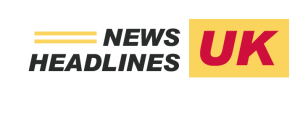The forex market allows investors around the world to generate money with the trading of currencies. Because of several reasons apart from the mentioned Forex market has become the biggest financial market on the Earth. As a result, it’s not a surprise that since the beginning of the previous decade, retail engagement in Forex trading has expanded significantly throughout Africa. Retail forex trading is currently in high demand throughout Africa, with certain nations, like South Africa, even exceeding markets in Asia and Africa in terms of size and importance. And this market continues to increase as time goes by.
It should be stated that nowadays there are around 1.3 million forex dealers in Africa, most of them coming from South Africa, Nigeria, and Kenya. Each of these three nations has a total of 190,000, 200,000, and 70,000 forex traders, which is quite a big number and tells us that the interest in Forex trading increases over time in Africa. Local rules and government monitoring of the retail forex market have allowed the forex trading sector and environment to flourish and strengthen significantly.
The Way Regulation Works In Africa
The forex market in Africa is dominated by South Africa. When it comes to the most traded currency around the continent, it should be stated that South African Rand is in the first place. Because of the increasing number of investors, there are many countries that have decided to regulate the Forex market. South Africa is no exception.
The excellent regulatory framework established by the Financial Sector Conduct Authority has been ascribed to the country’s leadership position on the continent. The Financial Services and Consumer Agency (FSCA) was established in 2018 as a replacement for the country’s Financial Service Board, which governed the country’s currency market until that time.
Foreign regulators may have more robust structures, but the FCSA is the continent’s oldest and most reputable. The main goal of the FSCA is to protect consumers from fraudsters and scammers in the marketplace, So, when it comes to starting Forex trading, one of the main things to consider is to find a broker which is regulated by a credible authority. One of the main steps as well as to get theoretical knowledge in Forex, like understanding Forex lot, pips, leverage, and generally, the way the marketplace works. Retail forex brokers are required to get ODP (Over-the-counter Derivative Provider) licenses from the FSCA, which also strives to educate and safeguard investors. To ensure that market participants, primarily its dealers and brokers, are operating in a transparent manner when dealing with customers, FSCA uses a reporting system. If any irregularities or misconduct are discovered, as was the case recently with South African broker JP Markets, the agency takes action.
In addition, some of Africa’s international brokers are subject to its oversight. So many global brokerage businesses are trying to get an FCSA license so that they may enter the African market. The FSCA, as shown on Axiory.com presently licenses thousands of organizations to provide a variety of financial products and services, including forex brokers that provide derivative instruments. According to some reports, investors are drawn to CFD and FX trading in South Africa because of the absence of leverage limits. South Africa and Namibia are two South African countries with a rising number of active online FX retail traders. No clear criteria exist for online forex trading in Namibia despite rigorous restrictions that enable currency exchange only via authorized dealers, bureaus, and commercial companies.
Namibia Financial Institutions Supervisory Authority (NAMFISA) has made no attempt to push overseas brokers to get local supervision, according to the South African forex review website Tradefx.co.za. As a result, foreign exchange brokers in Namibia are still virtually unrestrained in their operations.
Unregulated Industry In Africa
Nigeria, Africa’s most populous nation, does not have any regulations on retail internet currency trading, unlike in South Africa. In spite of this, Nigeria is Africa’s No. 2 retail foreign exchange market. In spite of the claim that Nigeria has 10,000 forex dealers, Nigeria’s daily FX trading volume is far lower than South Africa’s. On a continent-wide basis, Nigeria’s online retail forex trading market is dominated by foreign brokers, including those from South Africa and other countries, such as the Financial Conduct Authority (FCA), and the Cyprus Security and Exchange Commission (CySEC), and more.
So-called investors have been urged by the Nigerian Securities and Exchange Commission (SEC) in 2018 to stay away from high-risk, high-volume online retail FX trading. Anyone who engages in online retail forex trading until the SEC develops a framework for regulation is doing so at their own risk, according to a statement from the SEC Nigeria. Even if forex scams are becoming more commonplace in the Nigerian online forex trading market, this is a dangerous trend that has to be taken into account. In order to avoid starting forex trading with Forex scammers, there are several things that should be considered. Firstly, it will be better if you find a Forex broker that is regulated by a reputable authority. However, if you want to start trading with for example Nigerian forex brokers, which aren’t regulated by certain authorities, you should always search for information about them on the internet.
Based on the information you can collect with the help of the internet, you can understand whether or not it is worth starting to trade with a financial service provider. Usually, there are many reviews where investors write about their experiences with brokers. So, you can collect this data and get the right decision.




